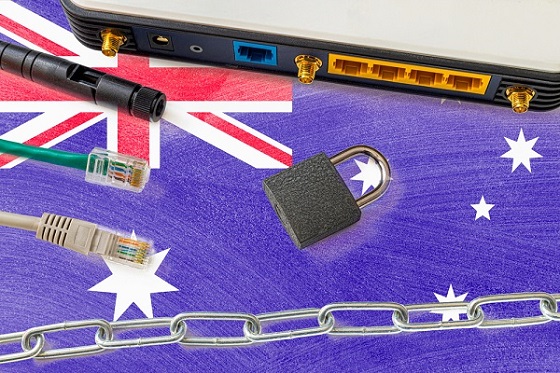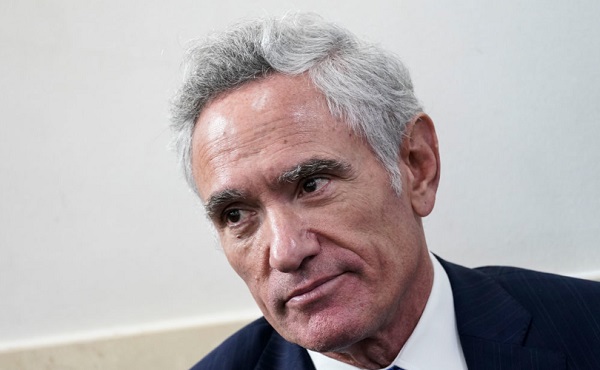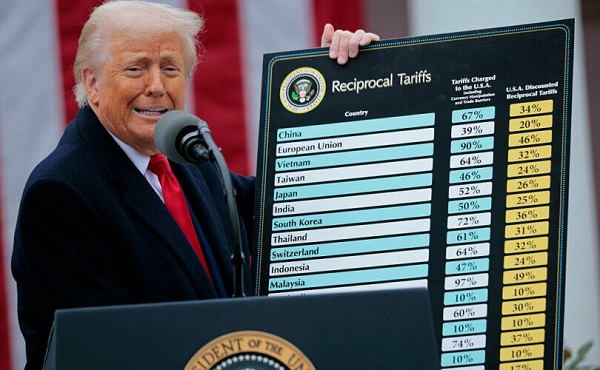Censorship Industrial Complex
Australia’s Misinformation Bill Is Dead…for Now

From the Brownstone Institute
By
The Australian government’s attempt to ram through legislation to combat misinformation online has been blocked after the Greens party announced it would not support the controversial bill.
“We are concerned this bill doesn’t actually do what it needs to do when it comes to stopping the deliberate mass distribution of false and harmful information,” said Greens Senator Sarah Hanson-Young.
This unexpected move is said to be the final nail in the coffin for the bill that intended to grant the media watchdog unprecedented regulatory powers to oversee digital content and determine what is ‘misinformation.’
A Domino Effect
During this week, an interesting display of parliamentary dynamics unfolded as an array of Senators announced they would oppose the bill, one by one.
Senators Lidia Thorpe, Tammy Tyrell, David Pocock, Jacqui Lambie, Gerard Rennick, Fatima Payman, and others declared their opposition.
Their reasons varied from concerns over government overreach, and vague definitions of misinformation, to the implications for political discourse and the potential for misuse. Each statement chipped away at the bill’s support, creating a domino effect.
An urgent call to action resulted in significant public outcry. Australians, concerned about their digital rights, flooded senators with emails, petitions, and social media campaigns.
The sheer volume of these communications likely played a crucial role in shaping the Senators’ views.
The vigorous debate also garnered international attention.
Michael Shellenberger, an American author and free speech campaigner, visited Australia to warn that these “totalitarian” laws would have implications for democracy, and blur the line between regulating harmful content and stifling dissent.
 Nov 20, 2024 – Michael Shellenberger on Sky News Australia
Nov 20, 2024 – Michael Shellenberger on Sky News Australia
According to Shellenberger, misinformation should be countered with more and better information, not through suppression or censorship.
Elon Musk, whose influence in the digital sphere is undeniable, especially after taking the helm of X, expressed similar views, and has been vocal about his disdain for what he perceives as “overreach” in digital governance, labelling the failed bill as “fascist.”
Digital ID for Under 16s
It has not quelled the government’s enthusiasm for its proposed ban of social media access for individuals under 16. This bill, which introduces a mandatory age verification process, has implications for digital identity and privacy.
The rapid legislative push on Thursday only allowed a 24-hour window for public submissions, a move to fast-track the controversial legislation without due public scrutiny.
The bill would require all Australians to undergo identity verification to use social media, raising alarms about the collection and potential misuse of personal data. The process could involve gathering biometric data, posing a risk for data breaches or misuse.
Today, Musk described the legislation as a “backdoor way to control access to the internet,” which promises to punish platforms, including X, with steep fines if they allow children under age 16 to hold social media accounts.
The combination of these legislative proposals (the misinformation bill, and the digital ID for under-16s), paints a picture of a government intent on tightening control over what you can say and read online.
What Happens Now?
After this week’s news, the Labor government must now retreat and reassess.
It could decide to abandon the legislative approach altogether and focus on other means like public education campaigns or working with social media platforms on voluntary codes of practice. But this is unlikely.
The government will most probably go back to the drawing board, either to revise the bill with more stringent protections for free speech or to explore alternative, less direct methods of addressing misinformation, hoping to revive the bill in the new year.
Republished from the author’s Substack
Censorship Industrial Complex
Scott Atlas: COVID lockdowns, censorship have left a ‘permanent black mark on America’

From LifeSiteNews
Editor’s note: The following text is taken from a speech delivered by radiologist and political commentator Scott Atlas to the Independent Medical Alliance conference in Atlanta, Georgia, on April 5, 2025. Transcription provided by Dr. Robert Malone.
ATLANTA (Robert Malone) — First, thank you to the organizers, and to my many friends and supporters here. It’s great to be here – surrounded by people who believe in personal freedom!
At the recent international Alliance for Responsible Citizenship (ARC) forum in London, I was invited to address the question, “Can Institutions be Reformed?” Begun with Jordan Peterson, ARC joins voices from all over the world to discuss how to refresh the institutions and best values of Western heritage, values that provided the world with history’s most successful societies, particularly the commitment to freedom.
I asked that audience to first consider:
Why, at this moment in history, are we finally focusing on how institutions should be reformed, or if institutions can even be reformed?
After all, for decades we have been aware that our institutions were failing – editorialized, dishonest journalism; wasteful, corrupt government; and agenda-driven schools and universities increasingly unbalanced toward the left, with many conservative faculty and students often self-censoring, afraid to offer unpopular views.
The answer? It is COVID, the pandemic mismanagement specifically – the most tragic breakdown of leadership and ethics that free societies have seen in our lifetimes.
COVID fully exposed the massive, across-the-board, institutional failure – including the shocking reality of overt censorship in our country, the loss of freedoms and the frank violation of human rights – in this country, one explicitly founded on a commitment to freedom.
Yet, oddly, the pandemic remained invisible at the ARC conference, unmentioned by dozens of speakers addressing freedom. It was the elephant in the room – just as explaining the truth about lockdowns, the pseudoscience mandates on masks and social distancing, closing churches and businesses, prohibiting visits to elderly parents in nursing homes while they die – all are missing from post-election discussions today in the United States, including, notably, any of the very public statements and proclamations from the new administration about health care today.
Today, in the wake of COVID, we are left with an undeniable crisis in health. Trust in health guidance has plummeted more rapidly since 2019 than any other government institution, with almost two-thirds now rating the FDA and the CDC as “only fair or poor.”
Half of America no longer has much confidence in science itself. Trust in our doctors and hospitals dropped from 71 percent in 2019 to 40 percent in 2024. The loss of trust is part of the disgraceful legacy of those who held power, who were relied upon to use critical thinking and an ethical compass on behalf of the public, who were handed the precious gift of automatic credibility and almost blind trust.
To understand how to move forward to restore trust, it’s important to first acknowledge basic facts about the pandemic, and keep repeating them, because truth serves as the starting point of all rational discussion. And we must live in a society where facts are acknowledged.
Remember – lockdowns were not caused by the virus. Human beings decided to impose lockdowns.
Indeed, lockdowns were widely instituted, they failed to stop the dying, and they failed to stop the spread – that’s the data: Bjornskov, 2021; Bendavid, 2021; Agarwal, 2021; Herby, 2022; Kerpen, 2023; Ioannidis, 2024; Atlas, 2024.
Lockdowners ignored Henderson’s classic review 15 years earlier showing lockdowns were both ineffective and extremely harmful. They rejected the alternative, targeted protection, first recommended on national media in March 2020 independently by Ioannidis, by Katz, and by me (Atlas) – and then repeatedly for months – based on data already known back then, in spring of 2020. It was not learned 7 months later in 2020, when the Great Barrington Declaration reiterated it, or in 2021, or 2022, or more recently.
And the Birx-Fauci lockdowns directly inflicted massive damage on children and literally killed millions, especially, sinfully, the poor. “The U.S. alone would have had 1.6 million fewer deaths (through July 2023) if it had the performance of Sweden,” according to a review of 34 countries. Bianchi calculates that over the next 15-20 years, the unemployment alone will cause another million additional American deaths – from the economic shutdown, not the virus.
Beyond a reckless disregard for foreseeable death from their policies, America’s leaders imposed sinful harms and long-lasting damage on our children, the totality of which may not be realized for decades. Mandatory school closings, forced isolation of teens and college students, and required injections of healthy children with experimental drugs attempting to shield adults will be a permanent black mark on America.
It is also worth remembering that this was a health policy problem.
While credentials are not the sole determinant of expertise, I was the only health policy scholar on the White House Task Force and advising the president. Virology is not health policy; epidemiology is not health policy. And while physicians are important in contributing, they are not inherently expert in health policy. Those are only pieces of a larger, more complex puzzle. The stunning fact is – I was the only medical expert there focused on stopping both the death and destruction from the virus and the death and destruction from the policy itself.
As Hannah Arendt observed in “Eichmann in Jerusalem”:
What has come to light is neither nihilism nor cynicism, as one might have expected, but a quite extraordinary confusion over elementary questions of morality.
More than massive incompetence, more than a fundamental lack of critical thinking, we saw the disappearance of society’s moral compass, so pervasive that we have rightfully lost trust in our institutions, leaders, and fellow citizens, trust that is essential to the function of any free and diverse society.
Why did free people accept these draconian, unprecedented, and illogical lockdowns?
This is the question. And the answer reveals the reason for today’s silence on the pandemic.
Clearly, censorship and propaganda are key parts of the explanation, tools of control that convinced the public of two fallacies – that a consensus of experts on lockdowns existed, and dissenters to that false consensus were highly dangerous.
Censorship first was done by the media companies themselves – when it counted most:
- In 2020, before the Biden administration, when school closures and lockdowns were being implemented;
- May 2020, YouTube bragged about its “aggressive policies against misinformation”;
- August 2020, Facebook shamelessly admitted to the Washington Post it had already taken down 7 million posts on the pandemic;
- My interviews as advisor to the president were pulled down by YouTube on September 11, 2020, by Twitter blocking me on October 18, 2020.
You might think the public – in a free society – should know what the advisor to the president was saying?
And what was the response to truth at America’s universities, our centers for the free exchange of ideas, including Stanford, my employer?
Censorship: character assassination, intimidation, and to me, formal censure.
Why is censorship used? To shut someone up, yes; but more importantly, to deceive the public – to stop others from hearing, to convince a naïve public there is a “consensus on truth.”
Truth is not a team sport.
Truth is not determined by consensus, or by numbers of people who agree, or by titles. It is discovered by debate, proven by critical analysis of evidence. Arguments are won by data and logic, not by personal attack or censoring others.
I am proud to be an outlier – happily proven right when the inliers are so wrong – but Cancel Culture is effective because it stops others from speaking. I received hundreds of emails from doctors and scientists all over the country, including from Stanford, from other professors, and from inside the NIH, saying, “Keep talking, Scott, you’re 100 percent right, but we’re afraid for our families and our jobs.”
And indeed, no one at Stanford Medical School – not a single faculty member there – spoke publicly against their attack on me. Only Martin Kulldorff, then a Harvard epidemiologist, wrote in and publicly challenged the 98 signatories at Stanford to debate on whether I was correct or not (none accepted that challenge!).
But that alone doesn’t explain today’s silence about that extraordinary collapse. It is not simply “issue fatigue.”
It is also that so many smart people, including many claiming to support the new “disruptors,” bought into the irrational measures when it counted most, when our kids and particularly the poor were being destroyed in 2020, uncomfortable to discuss and admit, but far more fundamental than the Sars2 origin, or Fauci, or the vaccine. That acquiescence, that silence, that cowardice, and that failure to grasp reality are inconvenient truths that no one wants to admit.
Today, disruption is sorely needed, and many are basking in the resounding victory of history’s most disruptive politician, President Donald J. Trump.
As promised, his new administration is moving quickly, disrupting on several fronts: national security, energy, trade, justice, immigration, and perhaps most importantly with Elon Musk’s effort to eliminate government waste and fraud, and protect our money. After all, the government has no money – it’s all our money, taxpayers’ money!
In health care, important changes in the status quo have also begun, first with Elon Musk’s much needed DOGE, streamlining tens of thousands of Department of Health and Human Services (HHS) bureaucrats while exposing massive fraud and waste in programs like Medicaid.
And Secretary of HHS Bobby Kennedy has also provoked an important, new national dialogue with his “Make America Healthy Again” mantra focused on wholesome foods to achieve the goal everyone readily supports – good health for themselves and their children. And no doubt, ensuring safety of all drugs and eliminating corruption in pharma and the food industry are also crucial to health. I am a strong supporter of those ideas.
We also have two excellent appointments in health – my friends and colleagues, Marty Makary to FDA and Jay Bhattacharya to NIH. Both Marty and Jay are highly knowledgeable, have top training and expertise, and are committed to critical thinking, to legitimate science, and most importantly to free scientific debate.
But I am concerned that most are simultaneously eager to “turn the page” on the human rights violations, the censorship, the true “constitutional crisis” – no setting the record straight, no official recognition of facts, no accountability? The ultimate disruptor won, and his disruptor appointees will now be in charge – so all is well?
Silently turning the page on modern history’s most egregious societal failure would be extraordinarily harmful. Failure to issue official statements of truth by the new government health agency leaders about the pandemic management would prevent closure for the millions who lost loved ones and whose children suffered such harms. And it would completely eliminate all accountability. Remember, only public accountability will prevent recurrence, and accountability is necessary to restore trust in institutions, leadership, and among fellow citizens.
My second concern: the era of trusting experts based solely on credentials must be over. But will that backlash against the failed “expert class” usher in a different wave of false belief? We cannot forget that legitimate expertise is still legitimate; that known, solid medical science is still valid; that unfounded theories based on simple correlations are not scientifically sound.
And we do not want to inadvertently replicate the cancel culture that harmed so many, with another wave of demonizing anyone who doesn’t 100 percent support the new narratives. It’s already begun – that if you disagree with any of the incoming opinions, then you must be “bought by pharma!” Blind support is just as bad as blind opposition; critical thinking must prevail.
What reforms are needed now?
- The first step to restore trust is formal, official statements of truth on the COVID lockdowns, masks, and other pseudoscience mandates from new HHS, NIH, FDA, CDC, CMS leaders.
- We need to forbid – by law – all shutdowns and reset that the CDC and other health agencies are (only) advisory. They recommend; they give information – they don’t set laws. They don’t have the power to set mandates. And if our guaranteed freedoms are not always valid, especially during crises, then they are not guaranteed at all.
- We need to add term limits (5 years?) to all mid- and top-level health agency positions. We cannot continue the perverse incentives of career bureaucrats accruing personal power, like Anthony Fauci and Deborah Birx with their 30-plus years in government.
- All new heads of HHS, FDA, NIH, CDC, and CMS should be prohibited from post-government company board positions in health sectors they regulate for ~5 years. It’s unethical, an overt conflict-of-interest. Why hasn’t that been announced?
- We need to forbid drug royalty sharing by employees of the NIH, the FDA, and the CDC. $325 million of royalties were shared with pharma by those people over the 10 years prior to the pandemic. That’s a shocking conflict of interest.
- We should forbid all mandates forcing people to take drugs. First, the essence of all ethical medical practice is informed consent. And what kind of a “free country” requires you to inject a drug into your child or yourself? No – that’s antithetical to freedom. In public health, you give the information… you shouldn’t need to force anything legitimate, but you do need to prove the case.
- We need to require the immediate posting of discussions in all FDA, CDC, and NIH meetings. They work for us. What are they saying? We should know in real-time.
- We need accountability for all government funding. We have 15+ universities getting >$500M/year from NIH alone. The essence of research is free debate. If they’re thwarting that with intimidation, like faculty censures, why would they be entitled to U.S. taxpayers’ money?
More broadly, I and others are working on policies to ensure the free exchange of ideas – the essence of all legitimate science, the basis for the mission of education.
Ideological gatekeeping in public discourse has no place in free societies, especially in science and health.
Here’s the point – the solution to misinformation is more information. No one should be trusted to be the arbiter of truth.
Ultimately, most solutions come from individuals, and ultimately, it is individuals, not institutions, who will save freedom.
I fear we still have a disastrous void in courage in our society today.
To quote CS Lewis, “Courage is not simply one of the virtues, but the form of every virtue at the testing point.”
We cannot have a peaceful, free society if it’s filled with people who lack the courage to speak and act with certainty on Hannah Arendt’s “elementary questions of morality.”
Finally, to the young people here, never forget what GK Chesterton said:
Right is right, even if nobody does it. Wrong is wrong, even if everybody is wrong about it.
Reprinted with permission from Robert Malone.
Censorship Industrial Complex
China announces “improvements” to social credit system

 MxM News
MxM News
Quick Hit:
Beijing released new guidelines Monday to revamp its social credit system, promising stronger information controls while deepening the system’s reach across China’s economy and society. Critics say the move reinforces the Communist Party’s grip under the banner of “market efficiency.”
Key Details:
- The guideline was issued by top Chinese government and Communist Party offices, listing 23 measures to expand and standardize the social credit system.
- It aims to integrate the credit system across all sectors of China’s economy to support what Beijing calls “high-quality development.”
- Officials claim the new framework will respect information security and individual rights—despite growing global concerns over surveillance and state overreach.
Diving Deeper:
China is doubling down on its social credit system with a newly issued guideline meant to “improve” and expand the controversial surveillance-driven program. Released by both the Communist Party’s Central Committee and the State Council, the document outlines 23 specific measures aimed at building a unified national credit system that will touch nearly every corner of Chinese society.
Framed as a tool for “high-quality development,” the guideline declares that credit assessments will increasingly shape the rules of engagement for businesses, government agencies, and individual citizens. The system, according to the National Development and Reform Commission (NDRC), has already played a role in shaping China’s financial services, government efficiency, and business environment.
Critics of the social credit system have long warned that it serves as an instrument of authoritarian control—monitoring citizens’ behavior, punishing dissent, and rewarding obedience to the Communist Party. By integrating credit data across all sectors and enforcing a “shared benefits” model, the new guideline appears to entrench, not ease, the Party’s involvement in everyday life.
Still, Beijing is attempting to temper foreign and domestic concerns over privacy. The NDRC emphasized that the system is being built on the “fundamental principle” of protecting personal data. Officials pledged to avoid excessive data collection and crack down on any unlawful use of information.
-

 2025 Federal Election2 days ago
2025 Federal Election2 days agoHarper Endorses Poilievre at Historic Edmonton Rally: “This Crisis Was Made in Canada”
-

 2025 Federal Election1 day ago
2025 Federal Election1 day agoMark Carney’s radical left-wing, globalist record proves he is Justin Trudeau 2.0
-

 conflict2 days ago
conflict2 days agoZelensky Alleges Chinese Nationals Fighting for Russia, Calls for Global Response
-

 2025 Federal Election2 days ago
2025 Federal Election2 days agoAn In-Depth Campaign Trail “Interview” With Pierre Poilievre
-

 Business2 days ago
Business2 days agoTrump’s tariff plan replaces free trade with balanced trade. Globalists hate that.
-

 2025 Federal Election16 hours ago
2025 Federal Election16 hours agoConservative Party urges investigation into Carney plan to spend $1 billion on heat pumps
-

 Censorship Industrial Complex2 days ago
Censorship Industrial Complex2 days agoScott Atlas: COVID lockdowns, censorship have left a ‘permanent black mark on America’
-

 2025 Federal Election1 day ago
2025 Federal Election1 day agoDon’t double-down on net zero again





